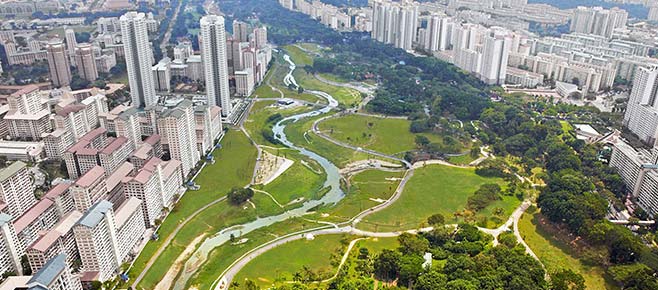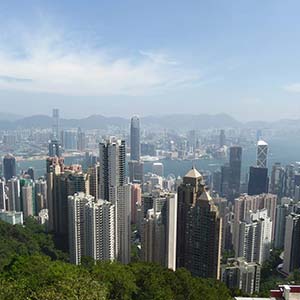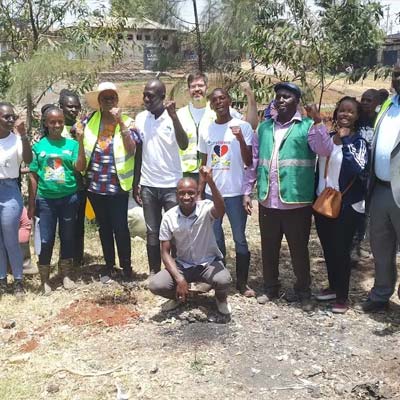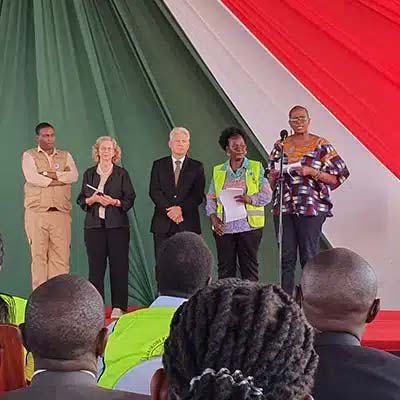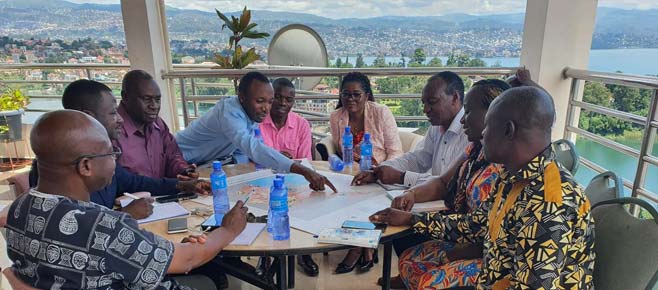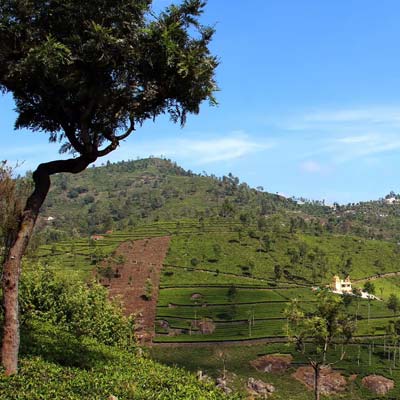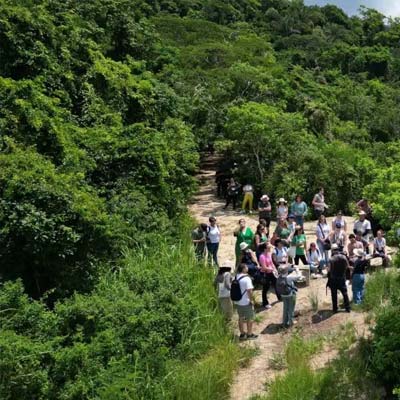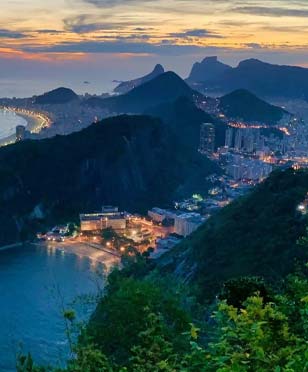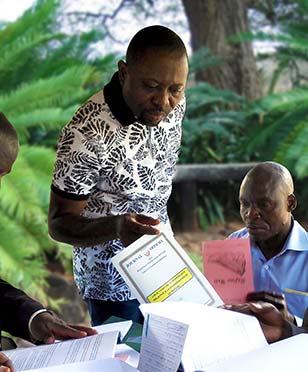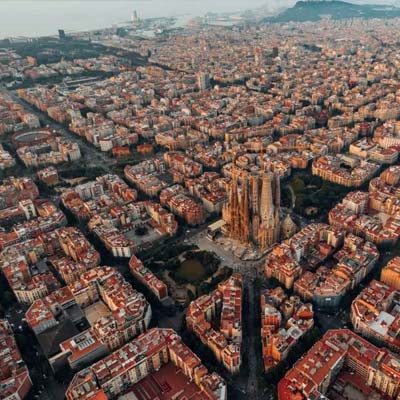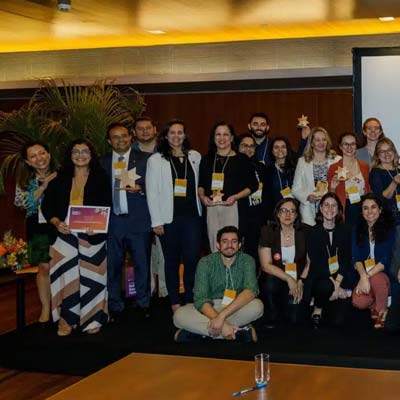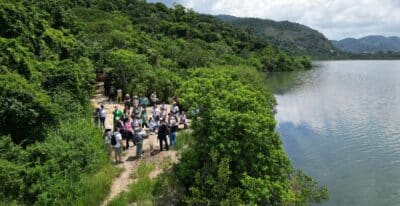NBS Accelerator Closes First Phase With Ten Green Urban Projects and Two Highlights
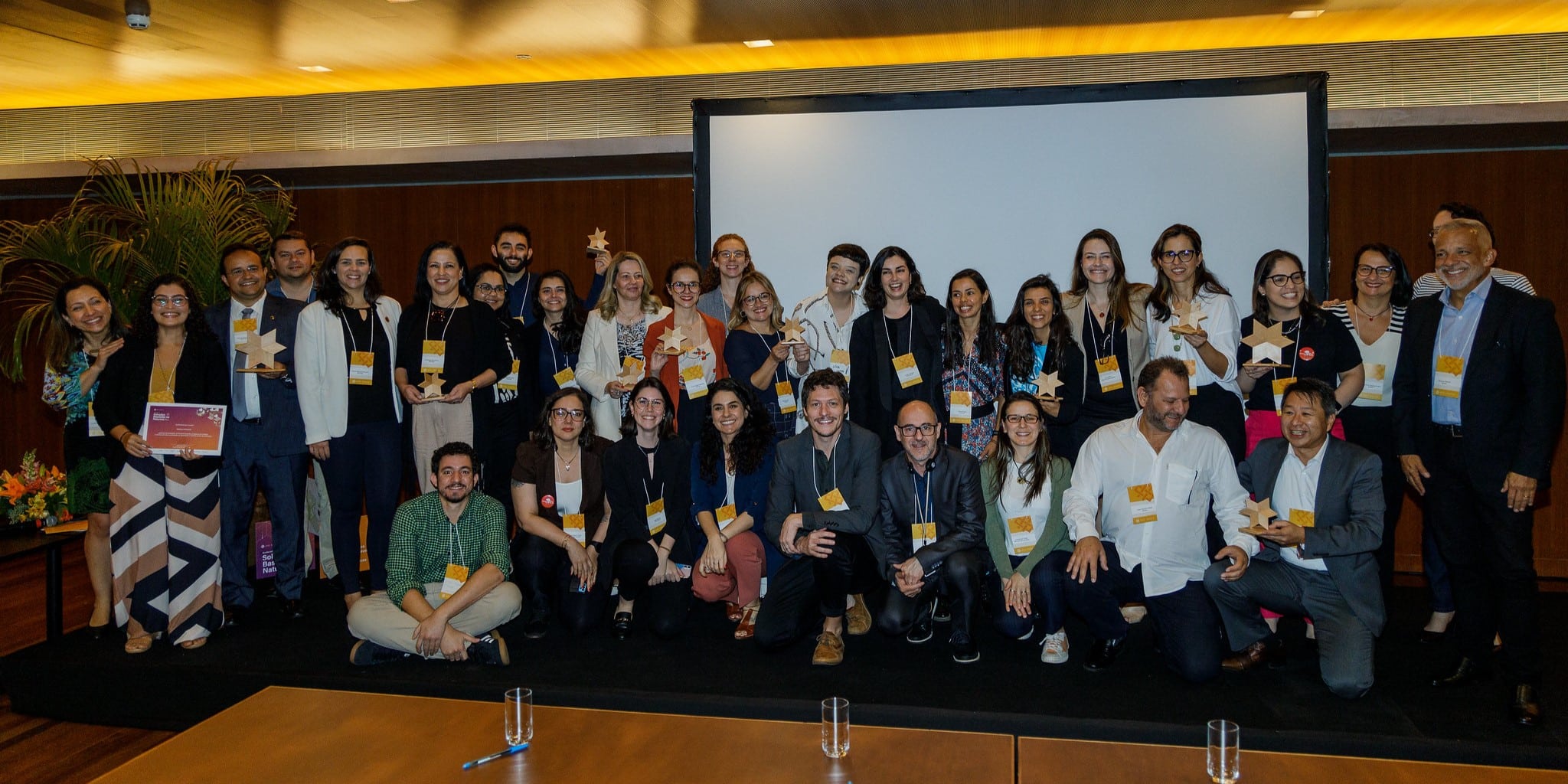
This post was originally published in Portuguese by WRI Brasil.
Among the more than 5,500 Brazilian municipalities, there are only a few with green infrastructure projects to make them more resilient to the effects of climate change. This changed for ten cities, which completed the first phase of the Nature-Based Solutions Accelerator in Brazil. At the closing event in Brasília, the country’s capital, the projects of Campo Grande and Maranguape were selected to advance to the impact phase, in which they will have additional support and opportunities to connect with funders.
Nature-based solutions (NBS) such as rain gardens, bioswales, and constructed wetlands are promising ways to address the major urban challenges of our time, such as climate change and inequality. But since these solutions are an innovative approach, cities often lack the capacity for planning and design, thus facing difficulties in developing bankable projects. The Nature-Based Solutions Accelerator in Brazil (known as the “Nature-Based Solutions Accelerator in Cities” within Brazil) is a first-of-its-kind training and mentoring program in the country that supports the structuring of urban NBS projects to make them more robust and increase their chances of accessing finance.
Throughout 2023, the Accelerator supported green projects from Camaçari, Bahia; Campo Grande, Mato Grosso do Sul; Estrela, Rio Grande do Sul; Maringá, Paraná; Maranguape, Ceará; Raposos, Minas Gerais; Santos, São Paulo; São Carlos, São Paulo; São José dos Campos, São Paulo; and Sobral, Ceará. If implemented, the ten proposals would directly benefit 3 million people.
“Seeing how the participants started the acceleration with very incipient ideas and arrive at this moment with well-structured projects makes us very happy and confident that the NBS Accelerator in Cities has already played an important role in boosting innovation in the public sector and a new look at the role of nature in urban centers,” says Henrique Evers, Urban Development Manager at WRI Brasil.
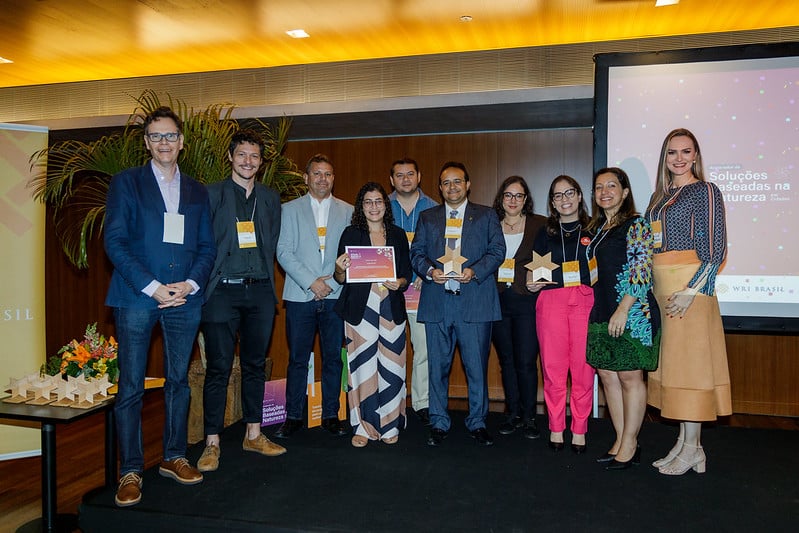
Campo Grande and Maranguape Stand Out
Led by different public agencies, the projects still face the challenge of accessing financing to enable implementation. Campo Grande and Maranguape stood out for the maturity of their proposals. Their projects, both multifunctional parks which combine public services with green solutions to generate climate resilience, will have additional technical support until April 2024, as well as opportunities to connect with funders.
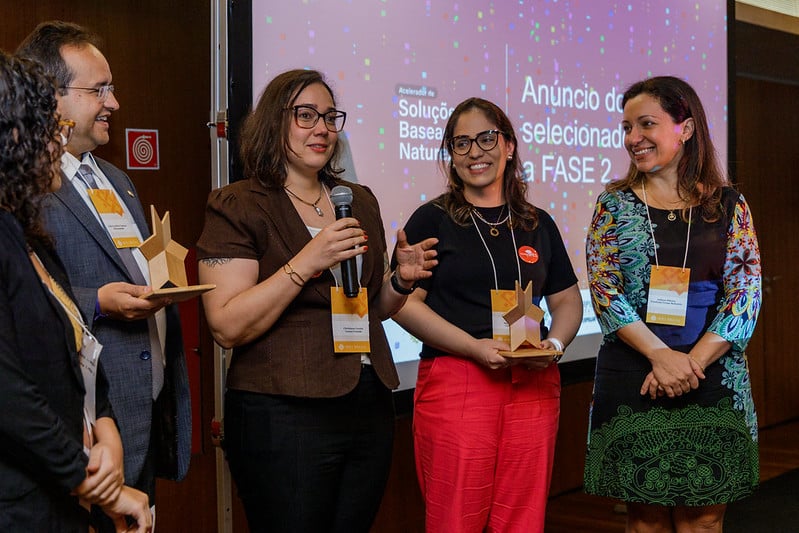
“The projects represent the diversity and complexity of the challenges that Brazilian cities of different sizes and regions face. But they also demonstrate the potential of nature to support the solution,” says Juliana Baladelli Ribeiro, NBS Specialist at Fundação Grupo Boticário de Proteção à Natureza (Boticário Group Foundation for Nature Protection), an institution that supported the Accelerator since its conception.
“Green projects like nature-based solutions are innovative and therefore challenge cities. By strengthening the technical and institutional capacities of municipalities for creating robust projects, in dialogue with other sectors of government and society, the Accelerator increases the possibilities for cities to access financing and implement solutions,” highlighted Luis Antonio Lindau, Director of WRI Brasil’s Cities program.
For Henrique Evers, “the projects of Maranguape and Campo Grande show that it is possible to bring nature as a central element of thinking about a city and solving real problems for the population, especially the climate adaptation agenda.”
Selection Considered Evolution and Maturity of Projects
The selection of the two projects considered the evolution of the proposals over the first eight months of training and mentoring and the presentation before a panel of experts at an event in Brasilia on August 10th. In the afternoon, the ten projects were able to present their proposals to representatives from regional, national, and international financial institutions at a matchmaking event organized by WRI Brasil and the Network for Sustainable Infrastructure Financing (FISC Network
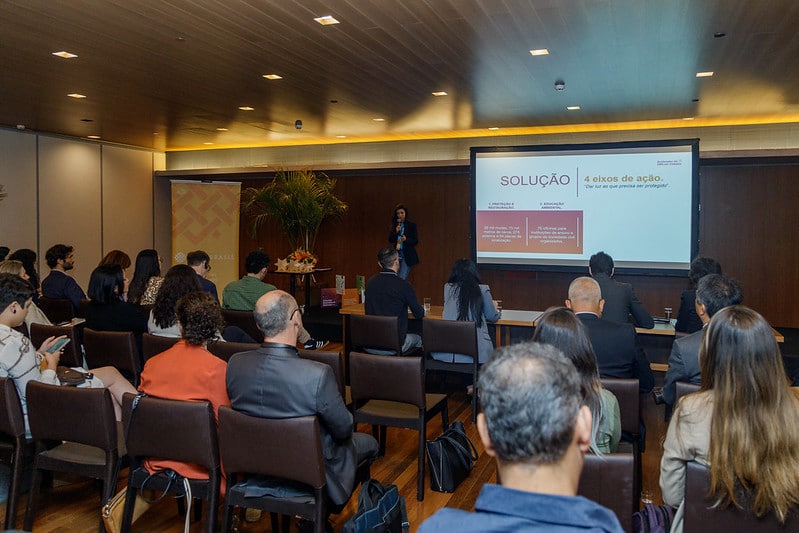
The selection of the two projects considered the evolution of the proposals over the first eight months of training and mentoring and the presentation before a panel of experts at an event in Brasilia on August 10th. In the afternoon, the ten projects were able to present their proposals to representatives from regional, national, and international financial institutions at a matchmaking event organized by WRI Brasil and the Network for Sustainable Infrastructure Financing (FISC Network).
The Nature-Based Solutions Accelerator in Brazil is an initiative of WRI Brasil with support from the Boticário Group Foundation for Nature Protection. It has funding from the Caterpillar Foundation and the Ministry of Environment, Food and Rural Affairs of the United Kingdom (Defra UK), and partnership with Cities4Forests and the Bioconexão Urbana Alliance.
About the Projects Selected for Phase Two
Parque dos Ipês (Ipês Park), Campo Grande
Led by the Municipal Agency for Environment and Urban Planning (Planurb) of Campo Grande, the Parque dos Ipês project centers on the construction of a multifunctional park across 12 hectares in a region frequently impacted by floods. Combining public equipment with rain gardens, bioswales, detention ponds, and other NBS, the park would mitigate the impacts of rainfall and expand the population’s access to green spaces.
“We were very happy to be selected because it shows that we are on the right track,” says Christiane Corrêa, biologist at Planurb. “This region has been facing this very serious flooding problem for many years. [If implemented], in addition to helping to solve this issue, the project will bring a green area to a region that does not have a park.”
According to Planurb’s calculations, Parque dos Ipês could directly benefit more than 3,500 people. The interventions could also be expanded to the rest of the municipality, with the potential to avoid almost R$760 million (almost US$154 million) in material losses by 2050, and R$8 million (roughly US$1.6 million) in lost productivity.
Parque Pirapora (Pirapora Park), Maranguape
Led by the Secretariat of Environment and Urbanism (Semurb) of Maranguape, the Parque Pirapora project would include the construction of a multifunctional park along the Pirapora River, which crosses the city. By combining public equipment with NBS such as detention ponds, rain gardens, bioswales, and infiltration trenches, the park will provide sustainable management of stormwater, revitalize the river, and improve the quality of adjacent urban spaces.
Maranguape is known for being the hometown of Chico Anysio, a late famous Brazilian comedian, and the house where Anysio was born is in Parque Pirapora area. The Semurb project includes a pilot street near the house, where the state government will develop a cultural complex. The street in front of the future complex would receive a series of NBS interventions, demonstrating the landscape potential and efficiency of green solutions and increasing confidence in investing in the project throughout the territory.
According to Semurb’s calculations, Parque Pirapora could directly benefit more than 11,000 people, of whom 4,000 live in poverty. The interventions could also be expanded to the rest of the city, with potential to avoid around R$2 million (about US$405,000) in material losses by 2050, and R$8 million (roughly US$1.6 million) in lost productivity.
“We know that the city’s economy is benefited by the project, but we have to share gains with those who need it most,” said Morganna Rangel, Director of Urban Development at Semurb.
